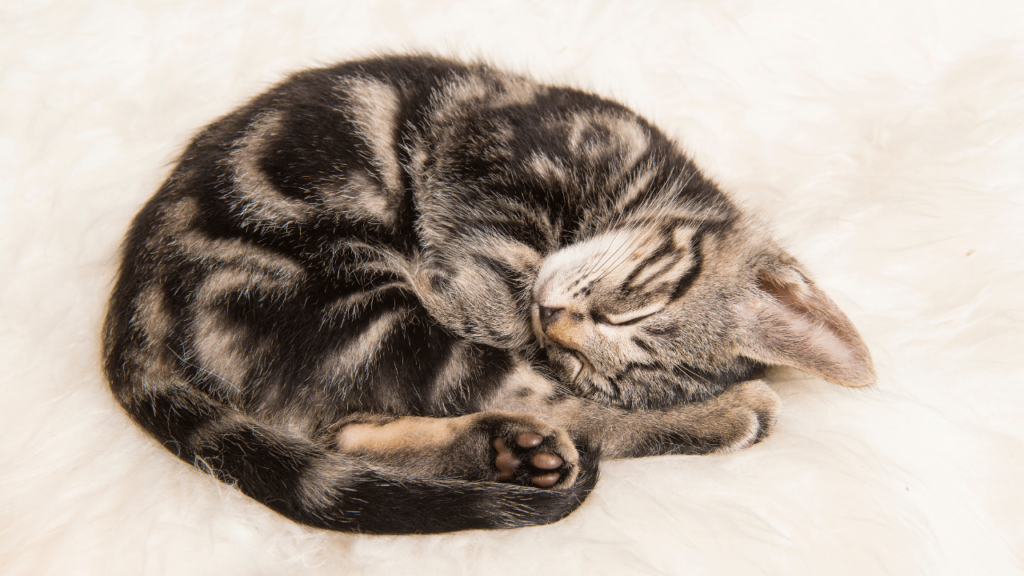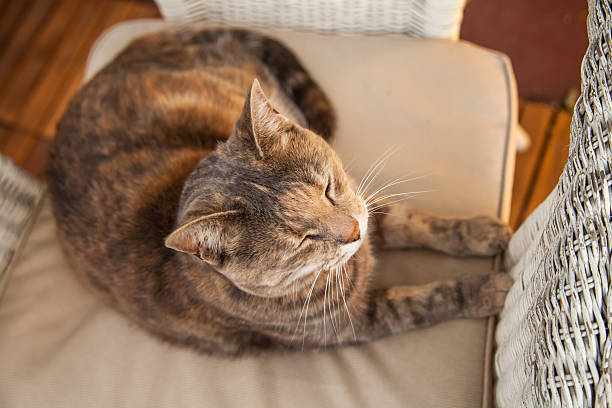Essential oils have been gaining popularity over the recent past for good reasons. These aromatic compounds are associated with many health benefits to humans, including antibacterial, anti-inflammatory, and mood-boosting properties among others.
While their adoption is widespread, information about their safety effects is still sparse and contradictory. This is particularly true when it comes to their effects on our feline friends.
A number of essential oils are known to be toxic to cats and exposure can lead to liver failure, respiratory issues, and a host of other health issues.
Frankincense is one of the popular essential oils that we use in our homes. We know that this potent essential oil has several benefits and when used properly can promote overall health and well-being. But is it safe for cats?
What Is Frankincense?
Also known as olibanum, frankincense, is a resin or hardened gum-like material derived from the trunk of the Boswellia tree. This is a tree that is native to dry, mountainous regions of India, the Middle East, and Africa.
Frankincense is commonly used as fragrance in lotions, perfumes, and soaps.
It has also been used in traditional Ayurvedic medicine for wound healing, aging skin, and fighting certain types of cancer.
Is Frankincense Safe For Cats?

Well, Iowa Veterinary Wellness Center classifies frankincense as non-toxic to cats.
Frankincense is also missing in the Pet Poison Helpline’s list of essential oils that are known to cause poisoning in cats.
Finally, a few blogs like this one lists frankincense as one of the essential oils that are safe to use around cats.
However, it is worth noting that essential oils and cats don’t always mix very well. These aromatic compounds have a host of toxic substances that pose risk to the health of cats.
So, the answer to the above question isn’t completely straightforward. Although the mentioned sites approve the use of frankincense on cats, we strongly advise our readers to be very cautious when using any type of essential oils on their kitties.
Before you use frankincense on your cat, therefore, please contact your local veterinarian for guidance regarding the exposure of the essential oil on your kitty and its potential for adverse effects.
And even if your local vet gives you the green light to use frankincense on your fur baby, there are a few vital caveats that you should always remember:
1. Gluconuridation Deficiency
Compared to dogs and humans, cats’ livers are deficient in an important metabolism process called gluconuridation. This is a critical step in the metabolism of oil and many other compounds.
This means that cats cannot metabolize oils and many other chemicals that humans and dogs can.
As a result, these chemicals either accumulate in their bodies or get broken down into toxic metabolites.
The most common culprits are phenols or compounds with aromatic or benzene rings.
Given that most essential oils contain phenols, you can clearly see why they are a no-no for your kitty—they build up in your cat’s liver, causing serious health issues like liver failure, seizures, and vomiting among others.
It is important to note that this is a slow process and you may not notice any worrisome symptoms for weeks or even months. In other words, your kitty may not show ill effects for a long time.
So, if you’ve been exposing your cat to essential oils and you haven’t seen any weird symptoms, don’t think that the oil isn’t harming her. Instead, you are slowly building toxicity levels in her body!
2. Sensitive Respiratory Tract
Our feline friends have very sensitive respiratory tracts and are susceptible to reactions caused by inhaled substances like dust and smoke.
Consequently, they have high chance of developing respiratory distress when you expose them to volatile oils.
3. Allergies
Some cats can also develop allergic symptoms like irritated eyes and nose, inflammation around the mouth or nose, and dermatitis from direct skin contact with essential oils.
Besides, cats with underlying conditions like chronic upper respiratory disease, asthma, skin allergies, and related conditions may experience an exacerbation of respective clinical symptoms when exposed to essential oils.
Important Precautions to Take If You Have To Use Frankincense on Your Kitty

If your local vet gives the green light to use frankincense on your cat, here are a few important precautions that you should keep in mind to ensure the safety of your fur baby:
I. Dilute it
Like when using essential oils on humans, consider diluting frankincense before using it on your cat or adding it to her food.
Some frankincense essential oil brands come in high concentration and using them undiluted can be potentially dangerous to cats.
II. Opt for therapeutic-grade essential oil
Not all frankincense oils are created the same. An essential oil that is too cheap may be impure or adulterated.
Before you settle on any brand of frankincense oil, do a meticulous background check on its source and manufacturing process.
We understand that you want to see some improvement in your kitty’s condition. You can only get the best results when you go for a high-quality product.
III. Diffuse cautiously
Your cat’s sense of smell is more sensitive than yours. So, when diffusing frankincense around your home, be as cautious as possible:
- Adding 1-2 drops to your diffuser would just be sufficient
- Always use the diffuser in an open space
- Never leave the cat confined in the space where the frankincense is being diffused. Make it easier for the cat to get away from the diffuser when she is overwhelmed.
IV. Know when to call the vet
Symptoms of essential oil poisoning in cats include coughing, drooling, vomiting, wheezing, tremors, wobbliness, low heart rate, and difficulties in breathing.
If you notice any of these symptoms after giving your cat frankincense or if you suspect that she has ingested an essential oil, contact your emergency vet immediately.
Most importantly, discontinue the use of any essential oil that causes any kind of discomfort to your feline friend.
Closing Thoughts
While some people believe that frankincense is safe for cats, particularly if administered in small quantities, we advise our readers never to take chances with essential oils.
Cats’ livers are deficient in gluconuridation process and any essential oil has the potential of being toxic to them.
Before using frankincense or any other essential oil on your cat, speak with your local vet to ensure the safety of your fur baby.
Finally, never assume that frankincense is okay simply because your kitty is attracted to its smell or is interested in sampling it. While cats are curious creatures, they seldom know what’s healthy or right for them.

Hi! I am Eleanor Price. I started this website after my cat, Louie, almost died from a case of botulism (a type of food poisoning often caused by bacteria that grow on food items). Turned out that my cat’s diet was the problem. I have made it my duty to provide the best information and recommendations about everything cat lovers need to know about their felines’ health and wellbeing. My goal is to find the most informative content on anything feline-related and share it with fellow hardworking kitty lovers.

